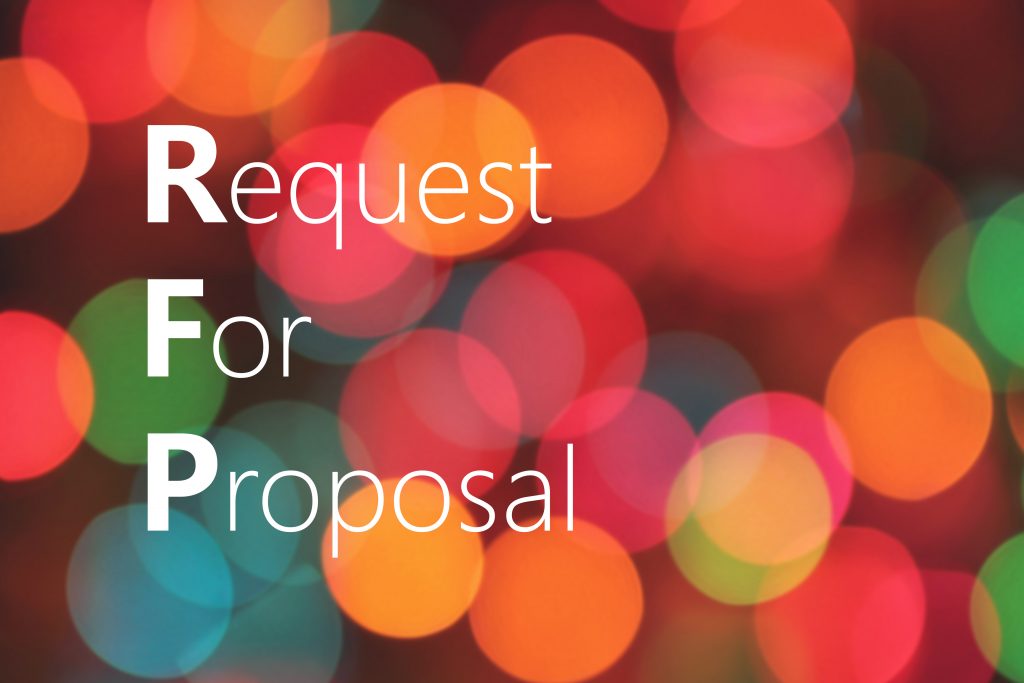One of the best sources of new client business for BIGfish PR has been inbound inquiries resulting from the press coverage we regularly secure and the hyper-effective campaigns we execute. We see this time and again; great PR campaigns attract great clients. Sometimes though, potential clients invite us to participate in a Request For Proposal (RFP) process. Over the past 25 years, we have seen a spectrum of good, bad, and truly ugly RFPs. The RFP process can be clean and simple or a black-hole-time-drain that consumes both client-side and agency-side hours with little clarity to distinguish the PR agency that’s right for your brand.
Frequently, the individual or team preparing the public relations RFP has never had to craft an RFP before or doesn’t know what should be included. And almost more importantly, what should be left out of a PR RFP. The outcome frequently is a long, burdensome RFP document that could potentially result in final candidate agencies that are really good at checking boxes and chasing paperwork, but might not a good fit for your brand. To avoid this, the goal should be to issue a well-prepared PR RFP that will enable you to narrow down a shortlist of agencies that have a much higher likelihood to succeed in representing your brand. A well-written and organized RFP will generate an outcome of agency responses that should enable you to better compare the agencies side-by-side and make the decision-making process less difficult.
If you are contemplating issuing an RFP to BIGfish PR, or if you’re simply looking for a good resource on how to craft a strong public relations RFP, below is a guide and some key points to construct an effective RFP and land the right PR firm.
4 Sections to Include in a Public Relations RFP
- The Client Brief
- The Project, Engagement, or Campaign Brief
- Questions for the Agency
- Timelines, Deadlines, and the Decision-Making Process
The Client Brief
- Brand history
- Current situation
- Who are the brand’s target audience(s)
- Any other pertinent information about the company and brand
The Project, Engagement, or Campaign Brief
- Explain why you are seeking to engage a PR firm
- Identify who at the brand, the PR agency will be reporting to
- Describe communication challenges facing your brand
- Clearly articulate PR goals and objectives
- Define what success looks like and expected outcomes
- Detail the brands’ business goals and any KPIs that are critical to measure
- Be as clear and specific as possible for the scope of work you would like to see
- Explain what internal resources will be made available to public relations efforts
- State what budget (or range) is allocated for the PR effort
Questions for the Agency
- Why is the PR agency a good fit for your brand?
- What is the agency’s experience with your brand’s industry and/or challenge?
- Who will be on your account team and who will be your main point of contact? What would an engagement with the agency look like? How does the agency charge for its services?
- What is the agency’s approach to project management and campaign execution?
- What two or three creative ideas, campaigns, or methods does the agency suggest?
- Define a Scope of Work for the engagement, complete with deliverables, specific time frames, and budget.
- What approaches will they use to drive PR results?
- How does the agency propose to meet your overall goals, objectives, and deliverables?
- What are the success measures utilized by the agency?
Timelines, Deadlines, and the Decision-Making Process
- How, when, and to whom should any questions or clarifications on the RFP be submitted
- Detail the criteria by which the agency selection will be based
- Give a set date for when proposals are due (make sure to give a reasonable time for agencies to complete the RFP thoroughly)
- Share a date for when a decision will be made
What NOT to Request
Do not ask an agency for free work in the RFP. Agencies absolutely hate being asked to develop a PR campaign or share all their best ideas as part of the RFP process. You should be reasonable and expect agencies to demonstrate their industry knowledge, strategic thinking, and creative approaches to your objectives. This is a critical item to keep in mind when drafting your RFP – that most agencies that are busy with client work, will not be willing to provide tremendous amounts of free creative ideas and solutions prior to knowing if they will be awarded a contract and compensated for their work.
How to Invite the Right PR Agencies to Submit Proposals
- Do a bit of research on the firms’ websites. Most PR agencies list their fields of expertise, services, capabilities, case studies, and agency philosophy on their websites. This is a quick and easy way to sort through agencies at the start.
- Check third-party resources for PR firm reviews like Clutch.
- Schedule a call with leadership at the PR agencies that look interesting.
- Try to narrow the field down to two or three agencies at most.
Another good Public Relations RFP resource can be found on the DesignRush website.
